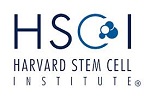Position 1.
The Fong Laboratory at Harvard Medical School (Department of Medicine, Brigham Regenerative Medicine Center, Brigham and Women’s Hospital) is looking to recruit a postdoctoral fellow interested in understanding gene regulatory and epigenetic mechanisms governing embryonic stem cell (ESC) pluripotency.
Our laboratory uses both in vitro reconstitution and in vivo cell culture techniques (CRISPR/Cas9 genome editing, shRNA-mediated knockdown, etc) to study the role of transcription factors and co-regulators in regulating pluripotency in ESCs and induced pluripotent stem cells.
Applicants should possess a Ph.D. and/or M.D. degree in Molecular Biology, Cell Biology, Biochemistry, or a related field. Training in biochemistry is highly desirable though not essential.
Interested individuals should send a cover letter, curriculum vitae, and the names/phone numbers of three people who could provide letters of reference by email to yfong@bwh.harvard.edu.
For additional information please visit our webpage: http://brmc.bwh.harvard.edu/fong-lab/dr-yick-w-fong/
Position 2.
The Fong Laboratory at Harvard Medical School (Department of Medicine, Brigham Regenerative Medicine Center, Brigham and Women’s Hospital) is looking to recruit a postdoctoral fellow interested in understanding gene regulatory mechanisms governing tissue regeneration in zebrafish.
One of the goals is to isolate and characterize the cells that contribute to the regenerating blastema, a heterogeneous population of de-differentiated cells that re-differentiates and gives rise to all cell types comprising the regenerated fin. To this end, we have generated multiple reporter zebrafish lines that enable us to mark and track these early “blastema precursor” cells in the amputated caudal fin stump. We have also used CRISPR/Cas9 technology to knockout candidate genes in zebrafish to probe their roles in fin regeneration. Ultimately, we aim to understand the repertoire of transcription factors and gene regulatory events controlling this highly dynamic process.
Applicants should possess a Ph.D. and/or M.D. degree in Molecular Biology, Cell Biology, Genetics, or a related field. The ideal candidate will have a strong background in fish genetics.
Interested individuals should send a cover letter, curriculum vitae, and the names/phone numbers of three people who could provide letters of reference by email to yfong@bwh.harvard.edu.





